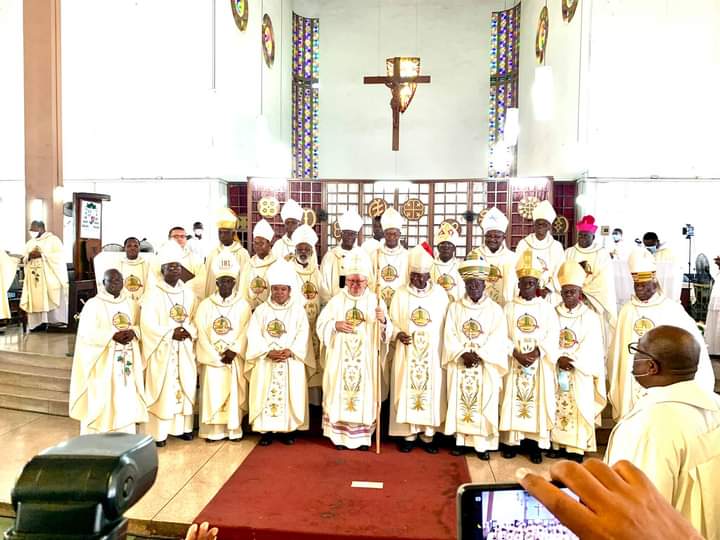The signing with ashes at the beginning of Lent is accompanied by the sobering message: “Remember that you are dust, and unto dust you shall return,” says the Ghana Catholic Bishops’ Conference in a Lenten Pastoral Letter issued on February 13, 2024.
According to the Bishops, “The meaning of this message is loud and clear: before God, we are all guilty (cf. Rom. 3:23) and in need of reconciliation,” stating, “To sin is to separate ourselves from the loving mercy of God as in the case of the prodigal son who squandered his father’s property or the elder son who refused to heed his father’s call to enter into his compassion and mercy (cf. Luke 15).”
The Bishops lamented that “Today, there seems to be a loss of the sense of sin. We often deviate from Christian moral norms, and sadly refer to such acts merely as mistakes.”
They exhorted Christians, Catholics especially to recognise our sins for what they actually are, saying, “We should learn to accuse and pass sentence on ourselves whenever we go astray as the prodigal son did: “I have sinned against heaven and against you, I am not worthy to be called your son” (Luke 15:21).”
The Catholic Bishops of Ghana were of the view that “God does not condemn or jail us when we accuse ourselves as guilty of sin. Rather, God, who is ever merciful, pardons and heals us.”
“We should, therefore, make a conscious effort to seek reconciliation with God through the Sacrament of Penance and Reconciliation,” they counselled.
Reconciliation with God, the Bishops noted, places on Christians the obligation of a ministry of reconciliation towards others, quoting St. Paul as saying “All this is from God, who reconciled us to Himself through Christ, and has given us the ministry of reconciliation; that is, in Christ God was reconciling the world to Himself, not counting their trespasses against them, and entrusting the message of reconciliation to us” (2 Cor 5:18-19).”
The Ghanaian Prelates noted that “Lent, therefore, affords us an opportunity not only to petition God for forgiveness, but also to reconcile with those who have caused us pain and hurt.
“We are to rekindle a reconciling attitude with regard to one another by ending our wrangling, by forgiving one another, by seeking reunion with grace and not with pride,” adding, “Every Christian is to serve as an emissary who speaks about reconciliation and acts as a reconciler.”
The Bishops of Ghana called on Ghanaians for that matter Christians and Catholics in particular to strive to become “sacraments of unity” – people with whom others are reconciled and through whom many enjoy God’s grace of reconciliation.



